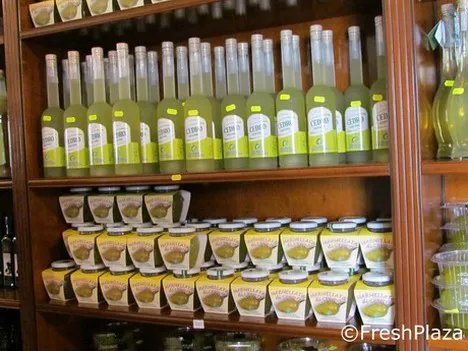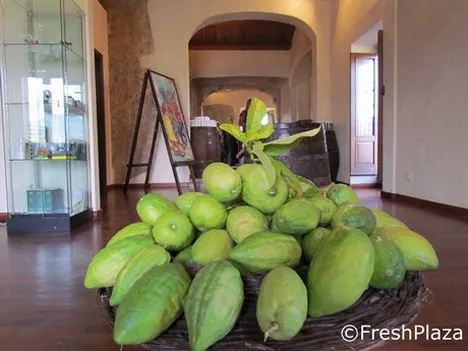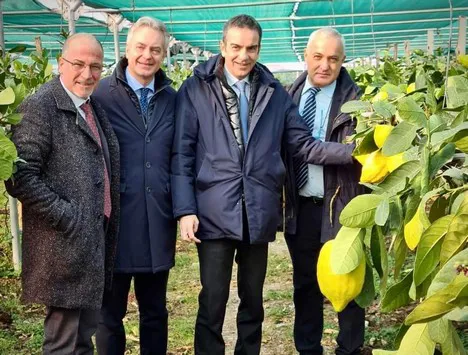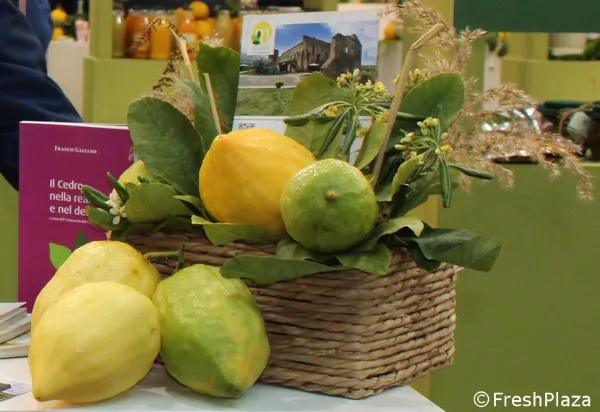The cedar from Santa Maria del Cedro has finally entered the European Register of Protected Designations of Origin and Protected Geographical Indications (see Official Journal of the European Union, 17/05/2023).
"The PDO process has been long and not without obstacles, culminating in the intense work carried out by the Consortium of the Cedar of Calabria, with the decisive support of the Calabria regional government. I've cherished this dream since I was really young," says Angelo Adduci, president of the Consortium of the Cedar of Calabria.
"In order to explain this accomplishment for the Santa Maria del Cedro PDO, I will borrow a term used in the cycling industry. This first intermediate sprint is dedicated to my mother and father, and through them, to all the women and men of Santa Maria del Cedro. Also, for the sake of truth and a toll of gratitude, the real driving force in this achievement has been and remains Don Francesco Gatto. To him goes the visionary idea to which I gave head, heart, legs and arms. From here on, the pedal strokes will need to be plenty more."
Angelo Adduci, president of the Consortium of the Cedar of Calabria, at Macfrut 2023
"The first time I tackled the PDO issue was back in 1993. At that time, I held the position of deputy mayor of the municipality of Santa Maria del Cedro. In November 1999, we established the Consortium of the Cedar of Calabria, which had among its primary objectives that of breaking the cartel operated by speculative traders, but also a focus on the diversification of processed products; the achievement of the annual production of at least 4,000 tons of cedar; reversing the negative trend that wanted 95 percent of the fruit to be processed outside the region of Calabria; and promoting the Santa Maria del Cedro cedar, both about its connection to the Jewish community and about its processing."
Lest we forget and not repeat the same mistakes of the past, Adduci stresses, "It should be remembered that in the year 2000 the cedar industry was on its knees. Cedar growers were totally discouraged, and no one in Europe consumed our candied citron anymore, which was the only product made from the fruit and sold exclusively as a semi-finished product."
 Cedar-based processed productions. Stock photo
Cedar-based processed productions. Stock photo
"Today, the Cedar of Santa Maria del Cedro speaks a universal language," continues Adduci, “whose significance many still do not understand, but I am confident and hopeful that the regional government is guiding this process with full recognition of its benefits not only for the Upper Tyrrhenian Cosenza area, but for all of Calabria.”
"The Dop/Pdo Economy [the segment of the food sector of geographical indication], will give an extraordinary boost to the growth of our territory and the whole of Calabria. The strong cultural connotations linked to this symbol of union with the Jewish community will be crucial. In the eyes of Jews all over the world, our cedar is the precious mêlon of the Gardens of Eden," concludes Adduci. "The European designation given to our cedar will definitely provide many benefits to the entire region.
 Cedar in the Museum dedicated to this citrus fruit, in Santa Maria del Cedro (CS). Stock photo.
Cedar in the Museum dedicated to this citrus fruit, in Santa Maria del Cedro (CS). Stock photo.
"It was barely a few months ago, precisely in Santa Maria del Cedro," recalls the president of the Region of Calabria, Roberto Occhiuto, "when we agreed on the last and decisive steps remaining for achieving this important goal together with all those involved actively in the process. In the span of just a few months, through the hard work of the Consortium, and within each of our competencies from the Department of Agriculture, we have succeeded in achieving a significant milestone for all of Calabria, which is evolving and creating a new narrative that differs from stereotypes and appearances."
"The result obtained," adds Regional Agriculture Councillor Gianluca Gallo, for his part, "rewards a team effort that shows how difficulties and obstacles of various kinds can be overcome through a good network. The recognition has an extraordinary value, since the citron is a symbolic fruit from a religious and cultural point of view. Relaunching its importance in terms of quality, through a specification that will be a guarantee, will allow to provide more value, also in terms of the development of the territory and the entire region.
 Angelo Adduci (president of the Calabrian Cedar Consortium), Gianluca Gallo (regional councillor), Roberto Occhiuto (president of the Region of Calabria) and Roque Pugliese (delegate Palmi-Reggio Calabria section of the Jewish Community of Naples). Photo provided by Angelo Adduci
Angelo Adduci (president of the Calabrian Cedar Consortium), Gianluca Gallo (regional councillor), Roberto Occhiuto (president of the Region of Calabria) and Roque Pugliese (delegate Palmi-Reggio Calabria section of the Jewish Community of Naples). Photo provided by Angelo Adduci
The PDO Cedar of Santa Maria del Cedro designates the fruit, or hesperidium, typical of the citrus fruit called citron, botanical species Citrus medica, L. (tribe of Auriantaceae, family of Rutaceae, order of Terebintae), smooth-diamond variety, Italian or Calabrian, cultivated within the production area that includes the administrative territory of the municipalities of: Aieta, Belvedere Marittimo, Bonifati, Buonvicino, Cetraro, Diamante, Grisolia, Maierà, Orsomarso, Papasidero, Praia a Mare, Sangineto, San Nicola Arcella, Santa Domenica Talao, Santa Maria del Cedro, Scalea, Tortora, and Verbicaro, in the province of Cosenza.

It should be noted that the Santa Maria del Cedro Dop citron is among one of the region's most valuable productions, which, with over 30% of organic areas, is naturally suited to produce high quality fruit and vegetables. Calabria is, as a matter of fact, ranked first in Italy when it comes to the production of clementines, including the PGI ones. It is followed by major horticultural crops, such as the PGI fennel from Isola Capo Rizzuto, the PGI potato from Sila, the PGI onion from Tropea Calabria, and the PDO bergamot essence from Reggio Calabria.
